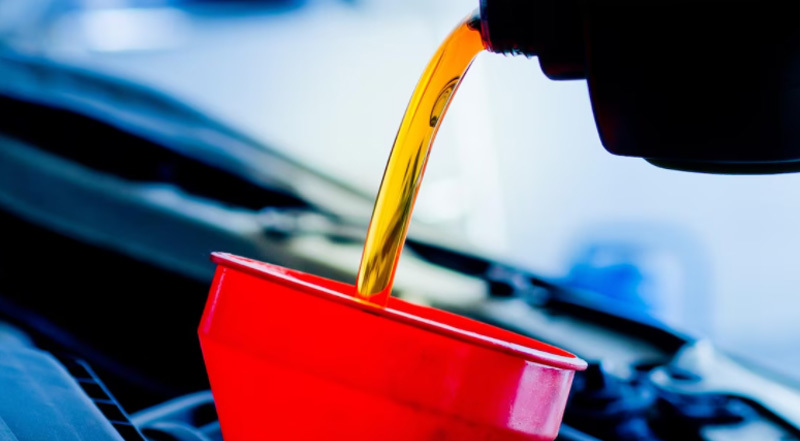
Methanol overcapacity may intensify this year
Release time:
2019-08-12
From May this year, the Ministry of Industry and Information Technology will promote the high proportion of methanol gasoline M85 and M100 in Minhang District, Shanxi and Shaanxi, which will bring a bright light to the expansion of methanol downstream demand. However, this is only a drop in the bucket for the domestic methanol industry, which is under the multiple impact of overcapacity, weak demand and import shocks. The industry trend in 2011 is still uncertain. Hu Qianlin, Deputy Secretary-General of the China Petroleum and Chemical Industry Federation, said in an interview with reporters that this year's methanol industry should transform traditional industries with technological innovation by implementing structural adjustment, developing methanol energy technology and deep processing new technology, and actively eliminate backward production capacity to completely change the difficulties faced by the industry.
From May this year, the Ministry of Industry and Information Technology will promote the high proportion of methanol gasoline M85 and M100 in Minhang District, Shanxi and Shaanxi, which will bring a bright light to the expansion of methanol downstream demand. However, this is only a drop in the bucket for the domestic methanol industry, which is under the multiple impact of overcapacity, weak demand and import shocks. The industry trend in 2011 is still uncertain. Hu Qianlin, Deputy Secretary-General of the China Petroleum and Chemical Industry Federation, said in an interview with reporters that this year's methanol industry should transform traditional industries with technological innovation by implementing structural adjustment, developing methanol energy technology and deep processing new technology, and actively eliminate backward production capacity to completely change the difficulties faced by the industry.
In 2010, although some new units in China's methanol industry were put into operation later due to uncertain factors, the total methanol production capacity of the whole year is expected to reach 35 million tons, and the output is about 15 million tons, with half of the overcapacity. It is understood that at the end of 2010, there were 25 methanol projects under construction that were originally planned to be put into operation in China, with a total of 8.61 million tons of new annual capacity, which means that the national methanol capacity will exceed 40 million tons in 2011, and the increase in capacity has far exceeded the increase in consumption demand. In addition, there are 25 methanol projects planned or in the planning stage in China, with an annual capacity of 24.4 million tons. The continuous production of new and ongoing units will further aggravate the situation of domestic methanol overcapacity.
The impact of imported methanol still exists. Due to its low price advantage, imported methanol is still strongly impacting the domestic market. According to the results of methanol anti-dumping sanctions announced by the Ministry of Commerce last year, Saudi Arabia, which has the most concentrated imports, is not among the dumping countries, and the import source channels in the Middle East are not restricted, which has disappointed the domestic methanol industry. The Ministry of Commerce also decided to extend the investigation period for six months, that is, the deadline for the investigation of this case is December 24, 2010. Without the support of anti-dumping, the domestic methanol market will remain depressed.
One of the important reasons why the domestic methanol industry has been seriously impacted by imported methanol is that the methanol products in the Middle East are low-price methanol produced from natural gas or oil field associated gas. Among the 180 existing methanol production enterprises in China, there are only 23 natural gas-to-methanol enterprises, with an annual capacity of 6 million tons, accounting for only 29% of the total domestic methanol production capacity. The rest are more than 140 coal-to-methanol enterprises and 13 coke oven gas-to-methanol enterprises. Although there are a large number of methanol production enterprises in China, the scale is generally small and the competitiveness is not strong. According to the Investment Analysis and Prospect Forecast Report of China's Methanol Industry from 2010 to 2015 released by CIC, the average annual output of methanol enterprises in China is only about 120000 tons, and the average annual output is only 60000 tons. The unit scale is small, the energy consumption and material consumption are high, the resource utilization is unreasonable, and the investment per unit capacity is high, resulting in high production costs and lack of international competitiveness. In contrast, the scale of the largest methanol plant in the world has reached 1.7 million tons per year, the investment in unit capacity has decreased significantly, and the cost competitiveness has been greatly enhanced. In addition, foreign large methanol plants mostly use natural gas as raw material and adopt natural gas two-stage conversion or autothermal conversion technology, which is more mature and reliable than coal-based methanol technology, and the conversion scale is less affected by methanol scale.
The market pattern of sluggish demand and difficult promotion of downstream products will not change much in 2011. As an important downstream dimethyl ether industry in the methanol industry, 2011 will also usher in a major negative. The National Standard for Dimethyl Ether for Urban Gas will be officially implemented on July 1, 2011. This standard clearly stipulates that dimethyl ether, as urban gas, can only be burned purely, and requires special bottles. The implementation of the Standard indicates that the road of mixing dimethyl ether with liquefied gas will be blocked, the overcapacity will be further aggravated, and the upstream methanol industry will be dragged down. Although methanol gasoline has occupied a market with its unique advantages and is expected to be widely promoted in 2011, the lack of policies is an insurmountable obstacle to the development of methanol gasoline. Only when the favorable policies are introduced can the spring of the industry be expected.
In addition, in the current methanol downstream products, formaldehyde, acetic acid, DMF, glyphosate and other varieties have serious overcapacity, including formaldehyde overcapacity of 32%, acetic acid overcapacity of 46%, DMF overcapacity of 50%, especially glyphosate. At present, domestic capacity has exceeded 22% of global demand, directly leading to weak demand and affecting the methanol industry.
In view of the current situation of methanol industry, Hu Qianlin suggested that: first, actively promote the development of alcohol ether fuel, formulate and issue relevant industrial or national standards for alcohol ether fuel such as low proportion methanol gasoline and dimethyl ether blended combustion, open up the application situation of alcohol ether fuel and digest excess capacity. The second is to actively carry out research on methanol deep processing technology and extend the product chain. When methanol enterprises apply for downstream product projects, the state can give appropriate preferential policies to promote the development of downstream products as soon as possible and stimulate methanol consumption. Third, we should strictly control the total production capacity, take measures such as increasing the size of production capacity and reducing the size of production capacity, and replace production capacity to eliminate backward production capacity, reduce costs and improve competitiveness. Fourth, we will vigorously support large methanol and dimethyl ether enterprises with development potential to carry out technological transformation in energy conservation, emission reduction and economic efficiency improvement, and accelerate the upgrading process of industrial structure.






